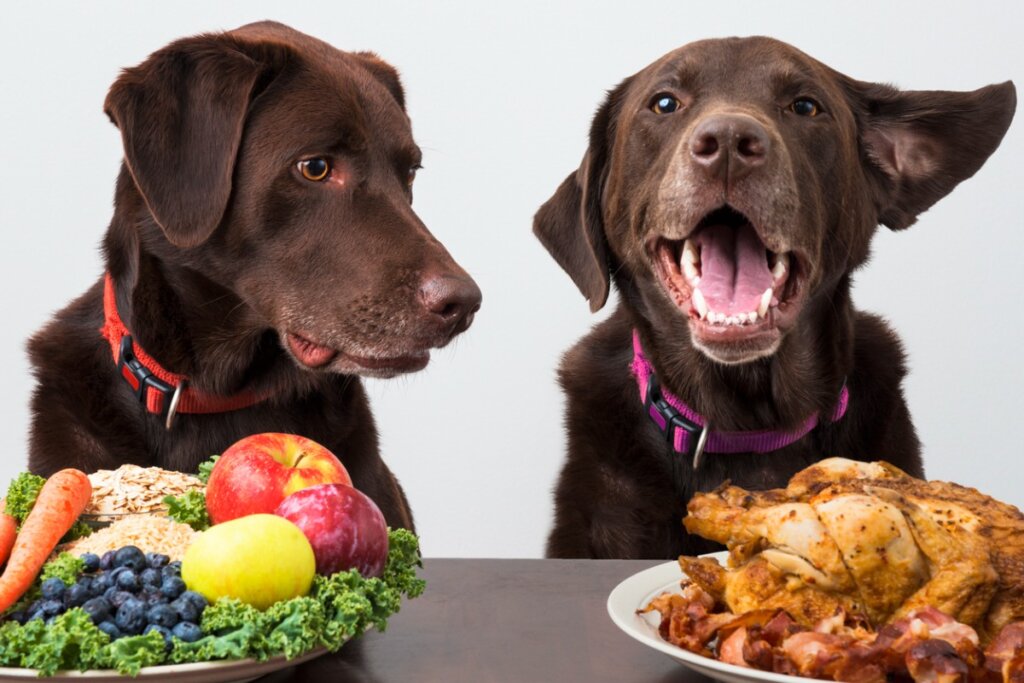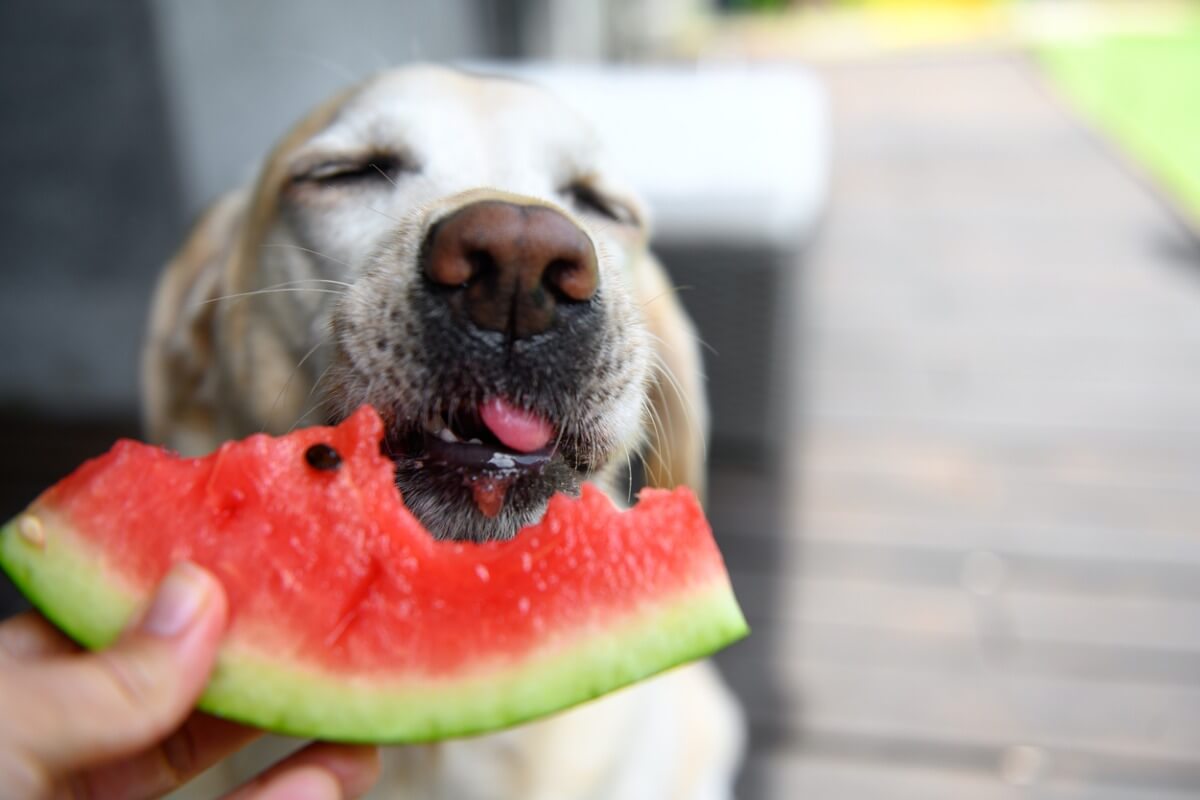What Fruits Can Dogs Eat?
Although dogs have a preference for meat, it's possible to include certain fruits in their diet that will benefit their quality of life in the long term. Find out in the following lines which fruits your dog can and can't consume.

Unlike their strictly carnivorous ancestors, dogs have developed the ability to assimilate different types of food. Thanks to this, today’s omnivorous dogs can eat certain fruits that can be beneficial for their organism and their well-being.
Most of these fruits provide our pets with antioxidants, fiber, and vitamins. These substances, which are present in fruits, help prevent diseases such as cancer and heart problems.
However, according to several scientific studies, not all fruits are beneficial or consumable for dogs. In fact, there are some that can be toxic and damage important organs, putting our dog’s life at risk.
For this reason, in this article, you’ll find the fruits that your animals can consume without any problem, as well as those that you should keep away from if you don’t want your dog to get sick.
What fruits can I give to my pet?

Before giving any type of fruit to our dog, we must remember to provide it in adequate amounts. The best thing in these cases is a portion of fruit once a day and in small squares or slices to facilitate its digestion. In the same way, we’ll need to remove both the seeds and the peel, since these could cause obstruction in their digestive system.
Among the most recommended fruits for our dogs are:
- Bananas: A source of vitamins B, C and E, and potassium, essential for the proper functioning of the internal organs. It’s recommended to provide 2 to 4 slices per serving, as larger amounts may cause mild diarrhea or constipation.
- Strawberries: Fruits rich in fiber, vitamin C, and antioxidants. They shouldn’t be eaten daily because of their sugar content.
- Apple: Because of their high vitamin A, C, B, E, and K content, apples are one of the favorite fruits for our pets. They also offer anti-inflammatory properties, ideal for preventing stomach problems. It’s important to remove both the core and the seeds, as they have components that can be toxic.
- Watermelons: In summer time, a good portion of watermelon will be wonderful for your dog, because they are fruits composed of 93% water. One or two slices will be enough to hydrate your pet.
- Tangerines: Due to their fiber content, this fruit will help your dog to maintain a correct intestinal transit. They also provide calcium and proteins, necessary for the development of muscles and bones.
- Mango: Apart from their fiber and vitamin content, mangoes are one of the favorite fruits for dogs because of their sweetness and softness.
- Kiwifruit: A good source of fiber, potassium and vitamin C. The ideal thing is to give 1 to 3 slices a day. Remember to remove the peel and seeds.
- Pears: One of the most beneficial fruits for its high percentage of water, vitamins C and E, and antioxidants. Likewise, due to its low calorie content, it’s recommended for dogs suffering from obesity.
- Papaya: A great favorite with dogs. It has good fiber and vitamin content, which will help your pet’s intestinal transit.
- Peaches: Fruits rich in fiber and iron, and ideal to prevent anemia problems. It’s important to remove the seeds because of their toxicity.
- Blueberries: A food that provides antioxidants, vitamin C, and fiber. They should be eaten in moderation due to their sugar content.

What fruits shouldn’t I give my dog?
Unlike humans, dogs don’t have some of the necessary enzymes to digest the compounds present in some fruits. This is why the consumption of these foods, instead of being beneficial, can represent a risk for our pet. Fruits that aren’t recommended for dogs are the following:
- Grapes: Besides not being easy to digest fruits, their components can affect our dog’s kidneys, causing renal insufficiencies. A small amount can cause serious problems that will be irreversible.
- Currants: Their toxicity can cause renal and hepatic failure in our dogs.
- Avocado: This isn’t an easily digestible fruit. In addition to this, it contains pectin, a toxic substance for dogs, cats, and other animals. Its consumption can cause indigestion and heart problems.
Finally, the main reason why fruit stems, seeds, and cores should be avoided is because of their cyanide content. This substance, in high concentrations, is poisonous for our pets, so we should always remove these parts.
Now that you know the fruits that dogs can eat, it’s time to start incorporating them little by little into your pet’s diet. Remember to provide them in small portions and try not to give them every day. Sweet foods should only represent 10% of what your dogs eat, so it’s recommended to use these foods as occasional treats.

